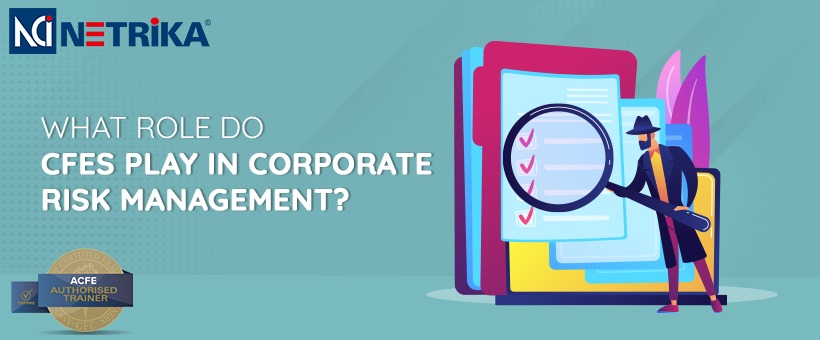News & Events
What Role Do CFEs Play in Corporate Risk Management?
- July 30, 2024
- Posted by: marketing@netrika.com
- Category: Blogs

In the field of corporate risk management, Certified Fraud Examiners (CFEs) play a crucial role by providing their specialized professional skills and knowledge to find, evaluate and prevent different forms of fraudulent actions. Their expertise is extremely valuable in ensuring that strong risk management frameworks are in place to protect organizations from financial losses, legal consequences and personal injury. Read more.
This blog delves into the role of CFEs in corporate risk management
1. Fraud Detection and Prevention
In the interest of each enterprise, CFEs enforce anti-fraud policies/procedures; appraise risks which could face an organization as a result of fraud; while they also design programs that are customized for prevention. To detect early red flags or unusual activities that may be indicative of fraud, CFEs install continuous monitoring systems and internal controls. They teach employees about identifying potential risks for fraud as well as how to report any suspicious activity or behavior thus creating integrity culture.
2. Risk Assessment
CFEs review the organization’s processes/ systems so as to detect areas where there might be susceptibility to fraud. Understanding what effect various types of fraud would have on an entity entails doing this type of analysis by these specialists. On the basis of their findings, CFEs make recommendations on strategies for managing these identified risks.
3. Investigations and Response
CFEs engage in comprehensive investigations aimed at revealing the scope and nature of fraudulent activities. They gather and assess evidence, ensuring that it is properly handled to support potential legal procedures. CFEs prepare exhaustive reports about their discoveries; providing recommendations that are actionable to management and sometimes, law enforcement authorities.
4. Being Compliant With Laws And Regulations
CFEs help organizations ensure they comply with all relevant laws, regulations and standards set by the industry concerning prevention and detection of fraud. They assist in creating and amending policies to be in line with regulatory requirements as well as best practices. They work closely with both internal and external auditors to ensure compliance audits adequately address fraud risk management.
5. Advice And Consulting
The CFE provides strategic advice on risk management and prevention of fraud to senior management and board members. This includes the development of a risk aware culture within organizations; emphasizing the significance ethical behavior plus transparency The CFE helps design & implement comprehensive enterprise risk frameworks.
6. Data Analytics and Technology Utilization
Certified Fraud Examiners use data analysis as well as forensic technology to discover abnormal patterns and tendencies that point towards fraudulent activities. They ensure that technology solutions used for fraud detection and prevention are effectively integrated into the enterprise’s overall risk management systems. CFEs learn about current developments in technology and apply them to improve fraud risk management.
The expertise of CFEs in detecting, preventing, investigating fraud as well as compliance ensures better organizational preparedness for today’s complicated risk environment. By cultivating a culture of integrity underpinned by advanced technologies, CFEs enable organizations to protect their assets while boosting general resilience to risk.
Also Read : How many exams are there in CFE?

